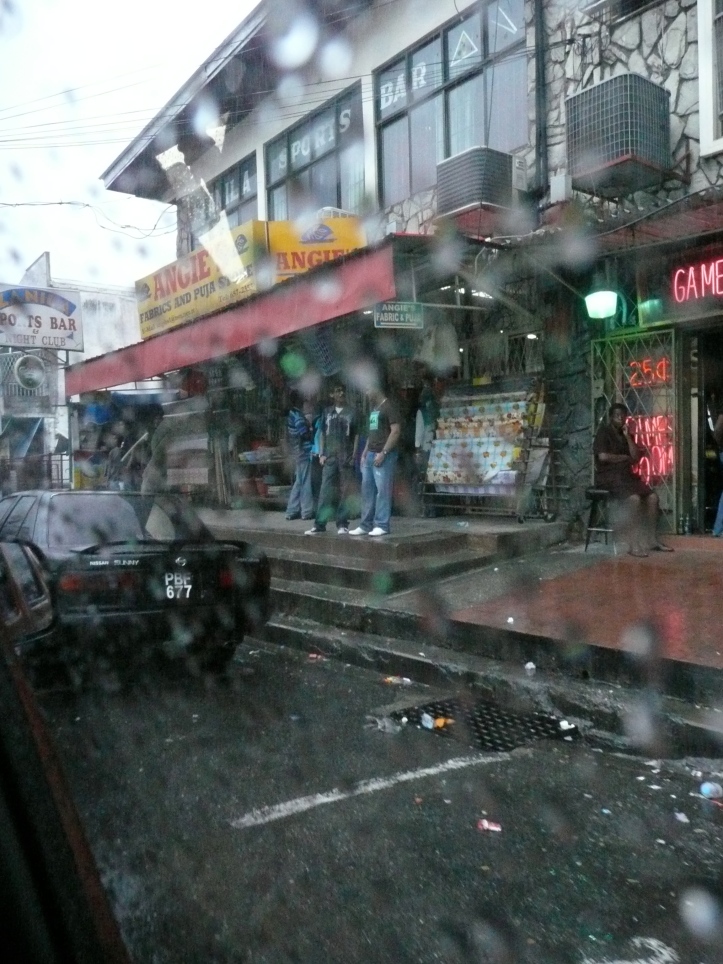Anne Timothy was there the day that I discovered I was white.
I met Anne when writing this article reviewing her Trini kitchen, “Anne’s Caribbean,” at the Broad Street Market in 2010, and — as I tell the story (although maybe she would tell it differently) — I asked so many questions during our interview that Anne eventually threw up her hands and invited me to Trinidad.
“Jon, too?” I said, not sure if I was to take her seriously. But Anne laughed — she’d already met Jon whenever he’d ordered a meal from her one day, asked her how to eat it, and promptly did everything she instructed, down to dousing the white rice in pepper sauce and using the roti flatbread as a spoon.
“Yes, Jon too.”
And that is how I found myself emerging from the airport in Port-of-Spain at sunrise in August 2010, eating doubles before 7 AM with the fog steaming over the Northern Range mountains.
I’ve already written elsewhere on this blog about Trinidad — a rhythmic country of sea and home and liming and fish stew and curry and sky — but what I’ve failed to mention is what I’ve only told Jon: that this may have been the most meaningful trip I’ve ever taken for reasons beyond the friendships, the bake-and-shark, and the bandanya.
In western Europe, where the majority of my travels have been centered, most cultural differences are variations on similar themes. Handshakes exchanged for bises. Wine for beer. Gothic architecture for Romanesque. Within these cultures, if I keep my mouth shut and keep from hesitating, I can pass for German, English, or French. It’s a game I play — a grown-up version of Pretend, of constructing belonging, of creating home.
Trinidad’s population is roughly 40% of African descent and 40% of Indian, meaning there was still a 20% category into which my skin could fall, but after days of traveling with Anne and her family, I would brush a strand of hair from my face and pull back, shocked at the whiteness of my palms.
“I knew knew how white I was,” I blurted one afternoon.
Anne laughed. What an announcement. In the eyes of the vast majority of the world, whiteness (along with maleness) is among the clearest signs of privilege; it is so clear, in fact, that I had lived for 25 years not having seen it. What did it mean that I had managed to completely ignore the historical tensions surrounding race — was it denial? How had my unspoken, socially-bequeathed privilege shaped the way I viewed myself and others? If I could not have seen this until I stepped outside of America within the arms of friends, what else had I missed?

Find an introduction on this series here. Dig into other life lessons here.
[…] go, and patience. A lot of them, like Lesson 8, are deeply about how I view myself; others, like Lesson 5, are about how I consider my positioning in this world. On certain days, I find myself writing […]
[…] for my last ballet performance and my first academic conference. He was there in Trinidad when I learned I was white, in Belgium when I tasted my first lambic. Jon asked me to have a voice and was there when I gained […]